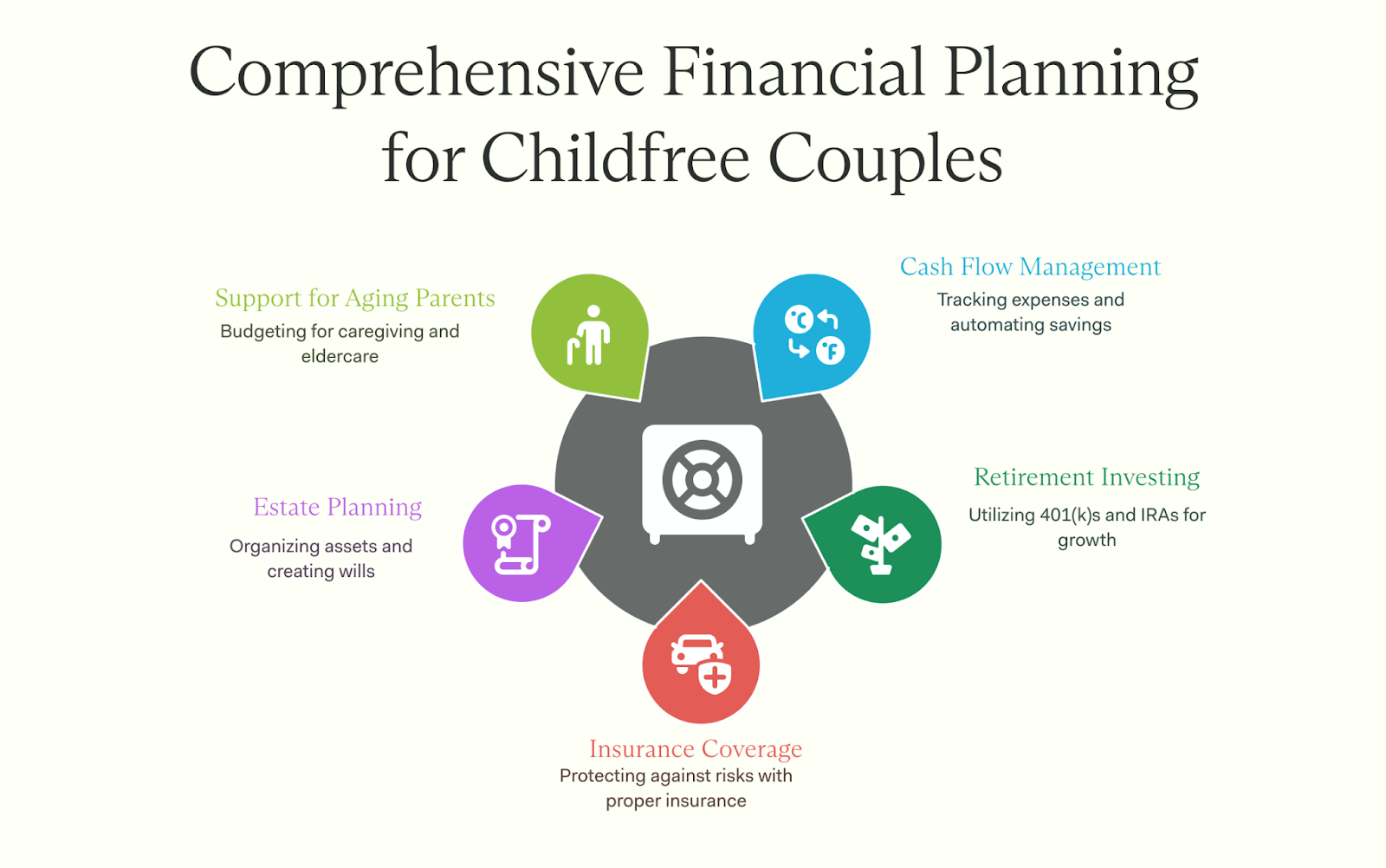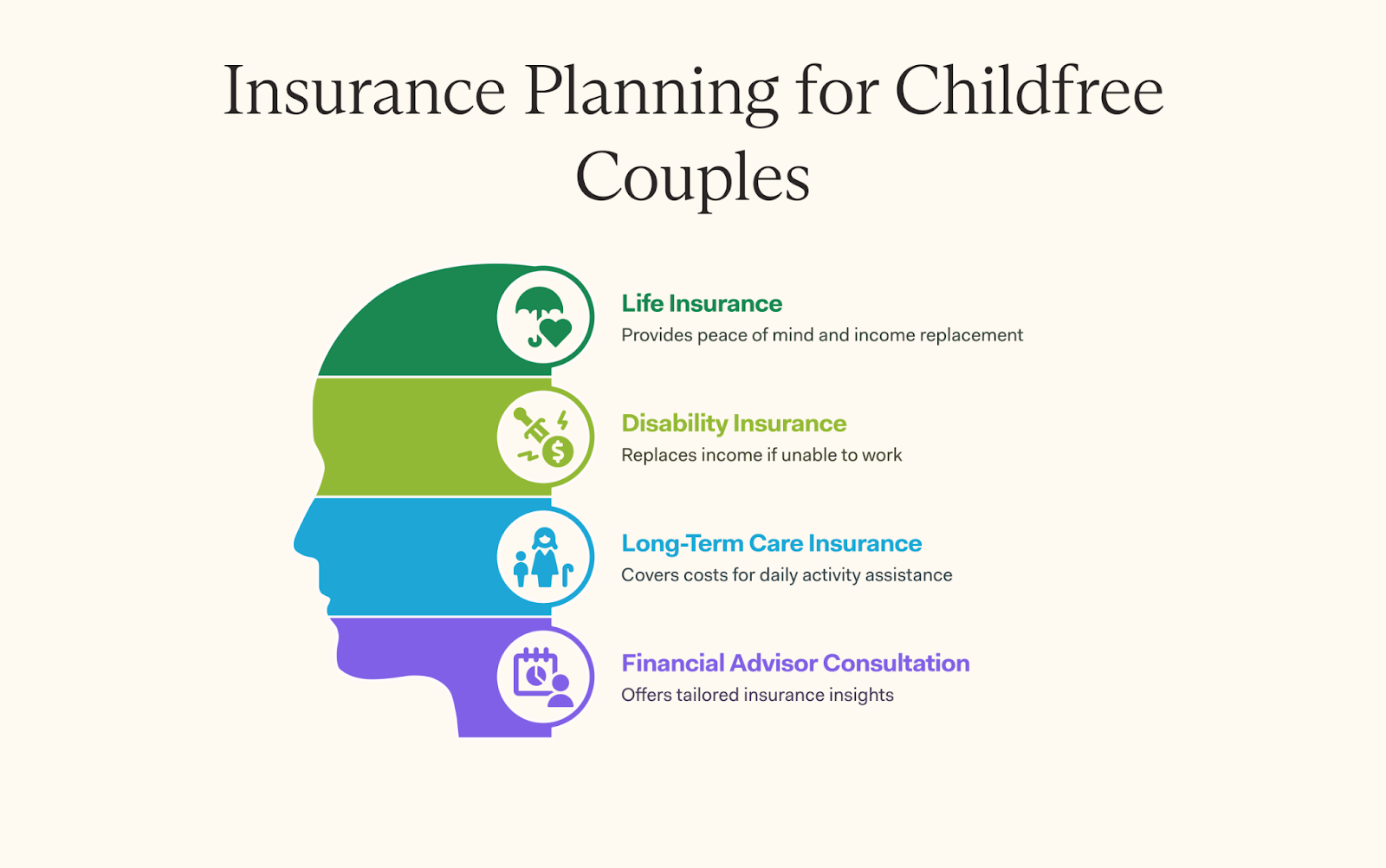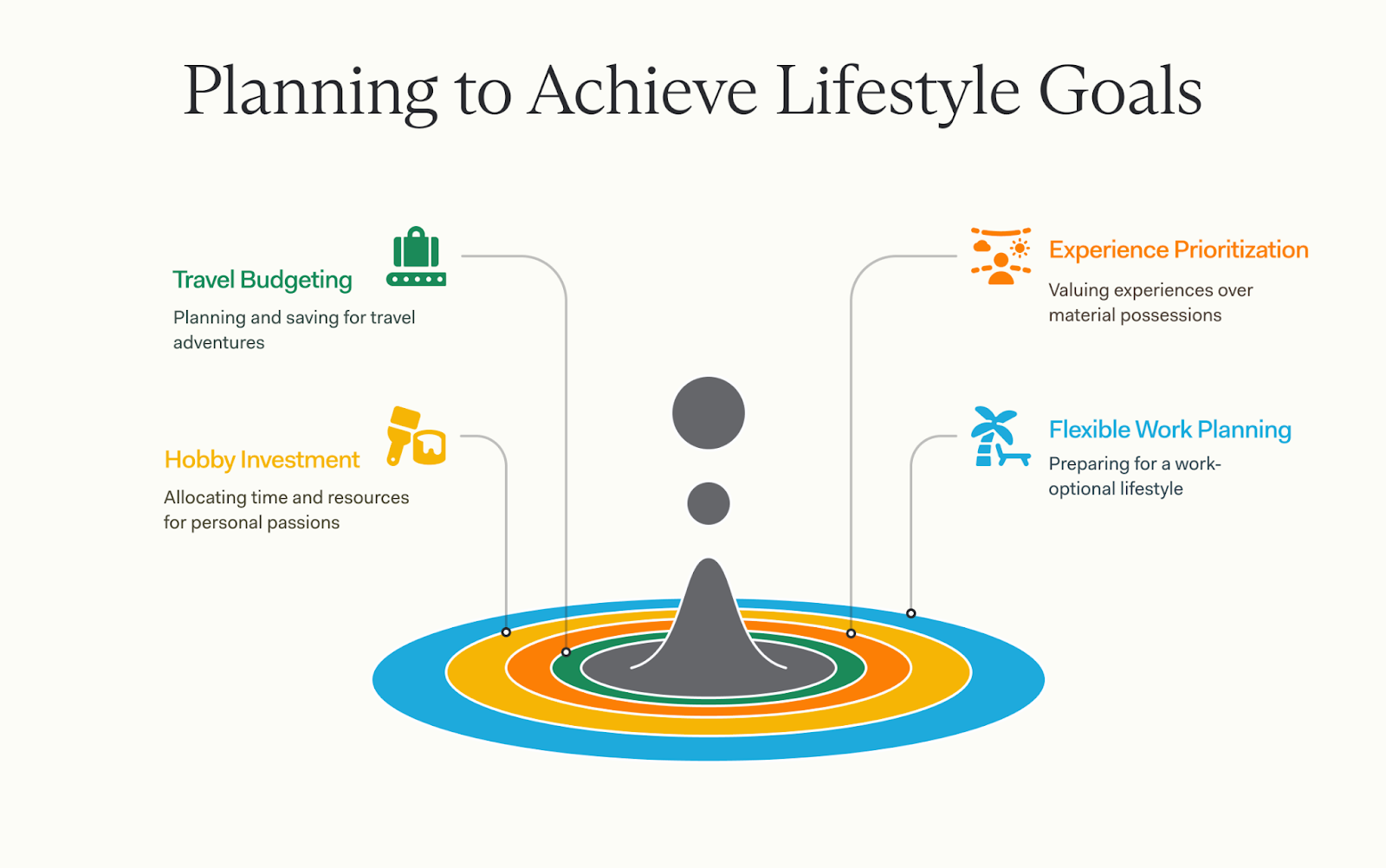Explore essential strategies for financial planning without children, ensuring a secure future. Start your journey to financial independence today.
Choosing not to have children is a significant decision, and many couples believe it will simplify their financial planning. However, it brings its own set of considerations and opportunities.
This article explores how childfree individuals can optimize their financial future. We'll cover saving strategies, investment options, and how to create a plan that aligns with your unique life goals.

A strong financial foundation serves as the cornerstone for childfree couples. It begins with effective cash flow management and establishing clear emergency savings goals.
Managing your monthly income and expenses effectively is essential. To achieve a positive cash flow, track your income and expenses meticulously. Look for ways to reduce spending on items that provide minimal value.
Consider exploring side jobs or investments that can enhance your monthly income.
Then, establish clear savings and spending objectives. This approach facilitates smarter financial decisions. Utilize personal finance apps or tools to monitor your spending patterns.
This strategy enables better planning for both immediate needs and long-term aspirations such as retirement or travel.
Emergency funds provide crucial protection for childfree couples. A robust safety net can cover unexpected expenses when they arise.
Establishing these reserves creates peace of mind and supports better money management for childfree individuals.
Making retirement a top priority now can help secure your future enjoyment. Smart investment choices allow your money to grow over time. Consider diversifying across different areas to build long-term wealth.
For childfree couples, focusing on retirement should be a key financial objective. Start setting money aside early by exploring options like 401(k) accounts or IRAs. These investment vehicles can grow substantially over time, enhancing your future wealth.
A financial planner can develop a tailored strategy for your situation. Strive to contribute enough to qualify for any employer match if available. This essentially represents free money that enhances your retirement nest egg. Make saving a consistent habit and adjust your approach as your financial circumstances evolve.
With retirement savings established, developing robust investment strategies becomes essential. Spreading investments across different asset classes helps minimize risk while maximizing potential returns. This approach means allocating your funds across various vehicles, including stocks, bonds, and real estate.
This diversification strategy particularly benefits childfree individuals. It enables wealth accumulation over time without depending on a single investment source.
Consider engaging financial professionals or a certified financial planner who understands the unique needs of childfree couples. A well-balanced investment portfolio can secure long-term growth and ensure sufficient funds for future aspirations—whether travel, hobbies, or other personal goals.
Proper insurance coverage provides essential peace of mind. Life and disability insurance protect against unexpected circumstances. Consider long-term care coverage as well to avoid substantial expenses in later years.

Insurance planning requires careful assessment for childfree couples who face different considerations than those with children.
Addressing these considerations now helps prevent complications later. Next, we'll examine planning for long-term care insurance.
For childfree couples, securing long-term care insurance deserves serious consideration. This coverage helps meet expenses should you require assistance with daily activities in your later years. Many people incorrectly assume Medicare will cover long-term care needs.
Without this coverage, you might face significant out-of-pocket costs, particularly for nursing homes or assisted living facilities.
Getting ahead of these concerns involves researching policies early. Premium costs vary considerably based on factors including age, health condition, and desired coverage level. Evaluate your potential support requirements against your budgetary constraints.
This proactive approach ensures you can maintain your preferred lifestyle without financial strain as you age.
For childfree couples, comprehensive estate planning addresses crucial decisions about asset distribution and who makes choices on your behalf if you become incapacitated.
Legal documents play a vital role in managing wealth and healthcare decisions for childfree couples.
For childfree individuals, designating proper beneficiaries and powers of attorney ensures your assets and care align with your preferences if you cannot make decisions.
These measures help establish comprehensive financial planning for childfree couples, ensuring alignment with their unique goals and needs.
The responsibilities of supporting aging parents can sometimes feel daunting. Create a budget for potential caregiving expenses and investigate professional eldercare services to make well-informed decisions.
Preparing financially for caregiving responsibilities represents prudent planning. This preparation helps you manage unexpected situations with confidence.
After establishing financial provisions for aging parents, considering professional care services becomes the next logical step.
Childfree individuals often encounter distinctive challenges when their parents age. Professional elder care services can alleviate this responsibility. These providers deliver essential support for daily activities, including meal preparation and personal hygiene.
They also offer companionship, an essential component of emotional well-being.
Various options exist, from home health aides to dedicated assisted living facilities. Research indicates approximately 70% of adults over 65 require some form of long-term care. Early financial planning for these potential expenses demonstrates wisdom.
Childfree couples should incorporate these possible costs into their financial planning to avoid unnecessary stress. Finding appropriate care requires balancing financial considerations with parental needs—a priority for many childfree individuals.
Making the most of your lifestyle goals requires thoughtful spending on activities that bring fulfillment. You can allocate resources for travel, hobbies, or creating a work-optional future. The focus should be on what truly matters to you.

Without child-related expenses, childfree couples often enjoy greater flexibility in allocating funds toward personal interests. Developing strategies for funding travel and hobbies can enhance life satisfaction.
Deliberate financial planning for travel and leisure allows childfree individuals to maximize life's pleasures.
Creating a flexible work-optional lifestyle requires personalized planning for childfree couples. Determine what truly matters to you. Allocate resources toward experiences that bring fulfillment, whether travel or passionate interests. Invest in experiences rather than simply accumulating possessions.
Traditional financial advice often doesn't apply when charting your unique course.
Consider what income level would support your desired retirement lifestyle. Part-time work or freelance projects might supplement your finances without committing to full-time employment.
Childfree couples have unique financial planning opportunities—from maximizing retirement savings and charitable giving to structuring estate plans that align with personal values.
A Farther financial advisor can help you design a financial strategy that prioritizes what matters most to you. Without the traditional expenses of raising children, you can focus on wealth accumulation, travel, early retirement, or other long-term goals.
Take control of your financial future. Talk to an advisor today and start planning for the life you envision.
Childfree couples face distinct financial opportunities that require thoughtful planning. With strong cash flow management and adequate emergency savings, you create a foundation for financial security. Strategic retirement planning becomes especially important, as you'll likely rely primarily on personal savings rather than family support.
Protecting your financial future through appropriate insurance coverage safeguards against unexpected health challenges. Meanwhile, comprehensive estate planning ensures your assets are distributed according to your wishes.
Without children in the equation, you have greater flexibility to design a lifestyle aligned with your personal values—whether that includes extensive travel, pursuing passions, or achieving financial independence earlier than most. Thoughtful planning transforms these possibilities into reality.
Financial planning for childfree couples involves investment management and life planning strategies tailored to the needs of individuals who make a conscious choice not to have children.
Childfree individuals have different priorities than those with children. They may focus more on securing their own long-term care, end-of-life care, and maximizing Social Security benefits rather than saving for child-care or college funds.
It's worth considering! Long-term care insurance can ensure you're covered when needing assistance in later years since you won't be relying on children to take up that responsibility.